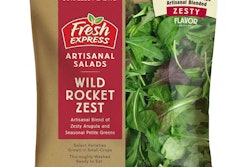The Registry creates a serious, urgent burden for food companies who discover food in commerce that has a reasonable probability of causing serious adverse health consequences or death (for example, because it’s contaminated with dangerous microbes, or incorrectly labeled so as not to reveal a major allergen): these companies, defined as “responsible parties” under the law, have 24 hours in which to report the food to FDA through a specially created Internet portal.
The law says that a “responsible party” has to make the report. If your company submitted a food facility registration to FDA under the Bioterror Act provision requiring food facilities to be registered, whether you are located in the U.S. or anywhere else, you are a “responsible party.” It is a violation of the Federal Food, Drug and Cosmetic Act for a responsible party to fail to make a required report about a reportable food.
The responsibility to make these Reportable Food Registry reports applies to FDA-regulated foods, including animal feed and pet food, but not including dietary supplements or infant formula, which have separate reporting obligations. The Registry does not apply to meat and poultry products regulated by the U.S. Department of Agriculture.
The online portal for making Registry reports was changed in May, so that it is now part of the Safety Reporting Portal that FDA operates with the National Institutes of Health.
Packaging problems as such are not immune from coverage by the program, so if a food’s packaging issues cause a potential health hazard, that food would be reportable. If recent events, including Kellogg’s off-taste and odor in cereals attributable to excessive hydrocarbons in a coating on package liners and McNeil’s drug product off-odors in polymer bottles picking up odor from pallets, are any indication, packaging as the cause of food adulteration may in fact be on the rise. Sometimes packaging may only lead to quality problems like off-odors, not reportable potential health hazards. Only foods likely to result in serious health consequences need to be reported. (At presstime, it was unclear whether any company reported the Kellogg issue to the registry though it doesn’t appear they’d have to do so.) But it’s not difficult to imagine that an undeclared major allergen or toxic contaminant in a packaging material, or a failure of packaging to keep food free of microbial contaminants, could make the food reportable under the program.


























